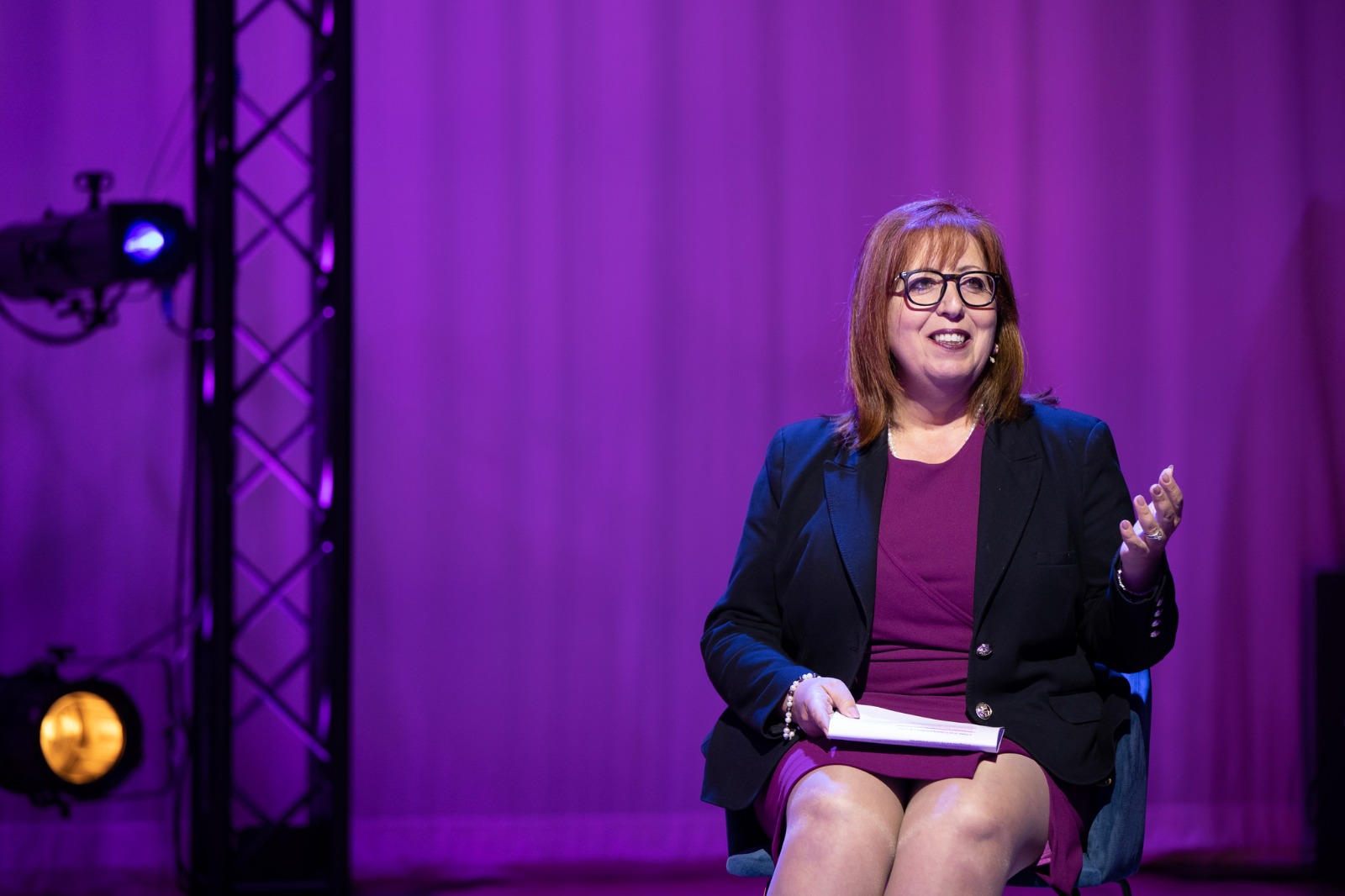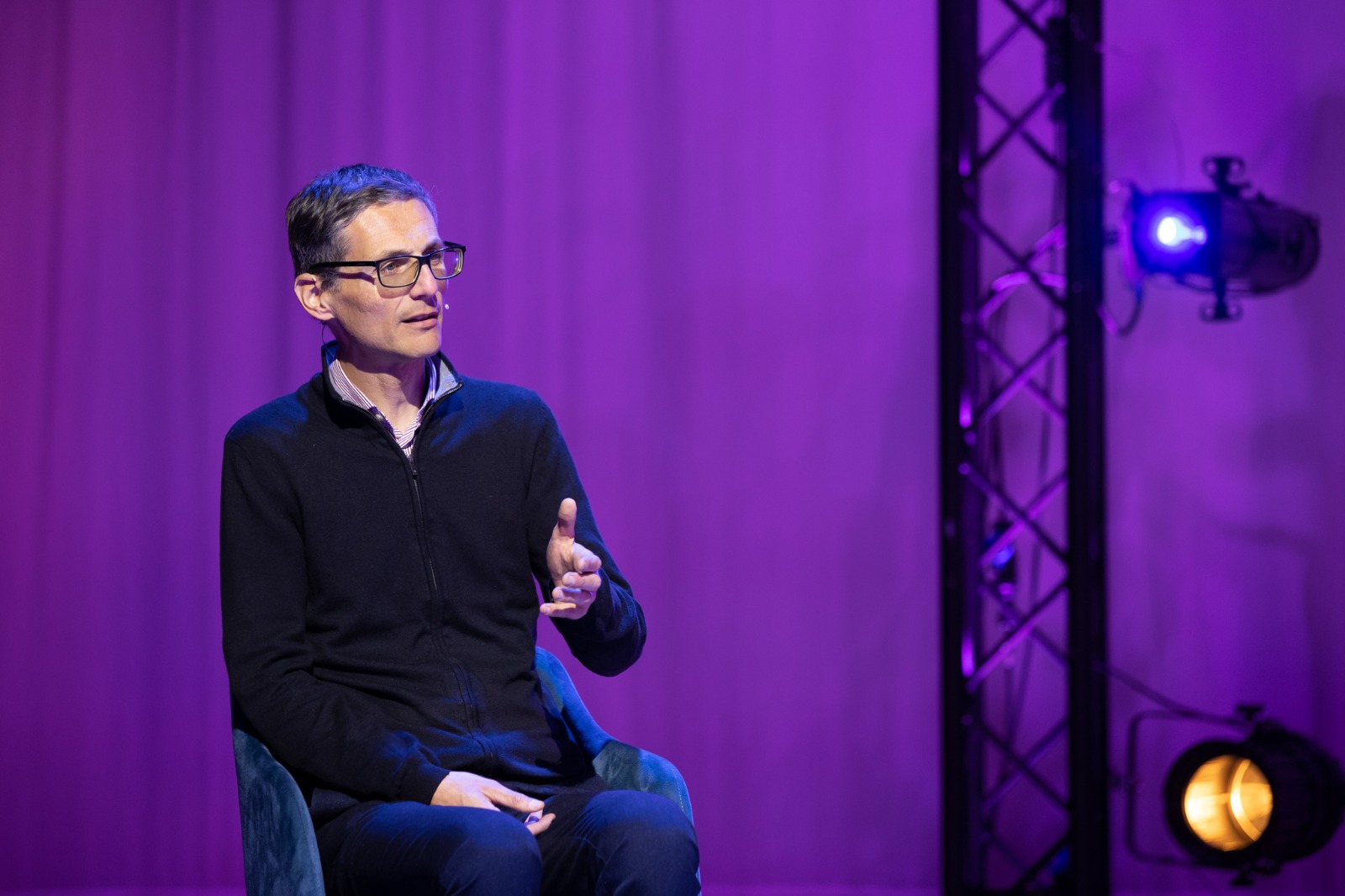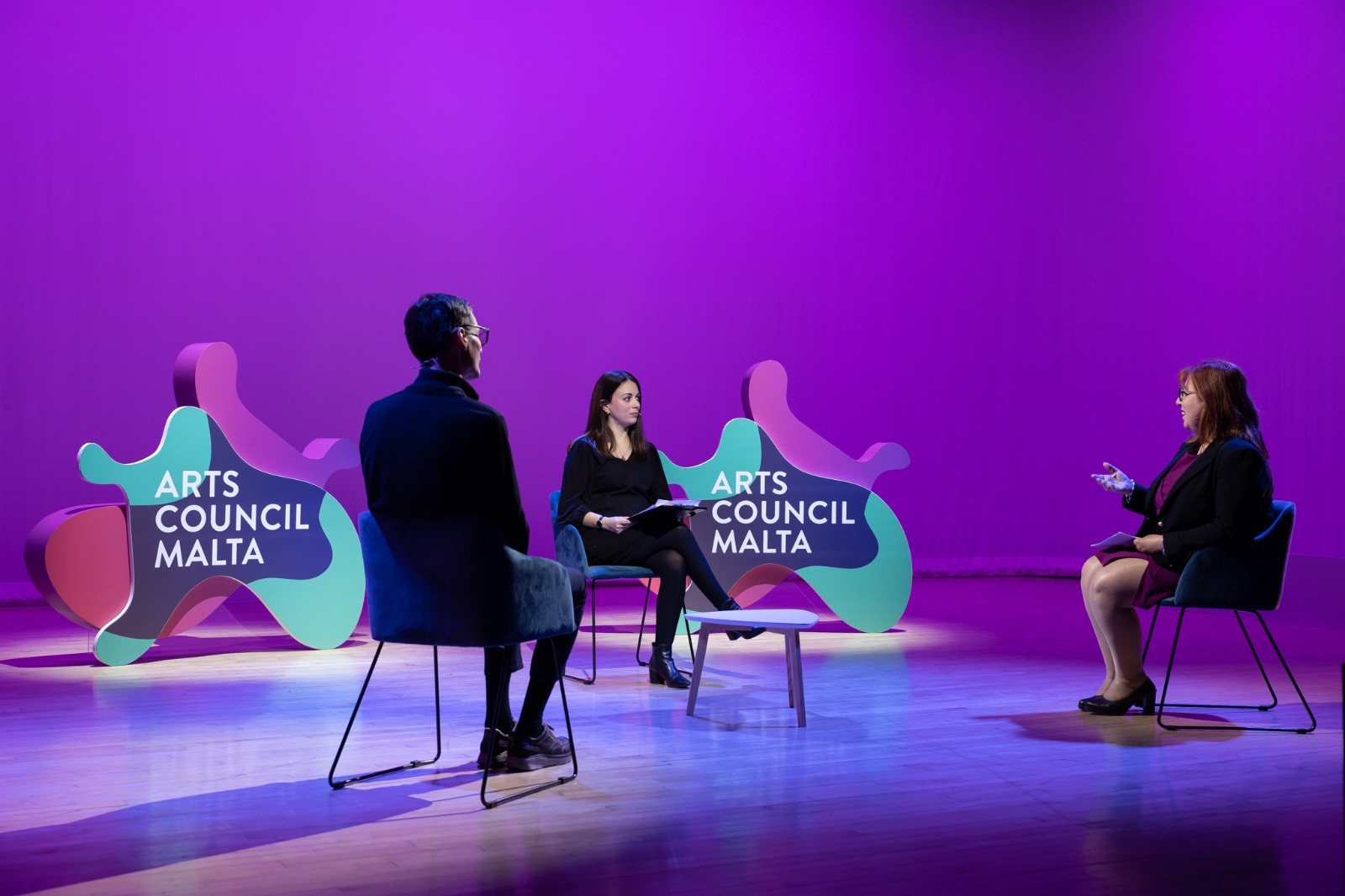Does art have a role in shaping and addressing conflict, and how do artists respond to this reality? ACMHangouts invites professionals to discuss the issue.
With the eyes of the world focused on the tragedy unfolding in Ukraine, ACMHangouts turns the spotlight on Art in Times of Conflict for its fifth session. Coordinated and hosted by Elaine Falzon, the discussion focuses on the role of arts and artists in times of conflict, and whether one can prevent and address conflict through arts and cultural diplomacy.
The session’s guests include Prof Carmen Sammut, Associate Professor at the Dept of International Relations and Dr Karsten Xuereb, a researcher in the cultural field. Falzon kicks off the discussion by referring to the unfortunate reality surrounding us, which is currently close to home and to our culture. What is the role of art in shaping and addressing conflict?

Prof Sammut states that art as a human expression can be used as a tool for global understanding and cultural diplomacy. However, it can also be used to push propaganda, such as during World War I, when posters were employed as a tool with an agenda.
Dr Xuereb introduces the idea of political sanctions, pointing out how these are currently being extended to culture and sport, with many artists who practise both in Russia and Europe - such as music conductors - being put in an impossible situation to express allegiance at a political level while fulfilling their artistic role. The situation, he adds, has even impacted the bicentenary celebrations that had been planned for celebrated Russian author Dostoevsky.
Profs Sammut concurs, reminding us that even during World War II, a number of Maltese artists studying in Italy were looked at suspiciously, adding that artists throughout history have been persecuted in times of conflict and referring to Salman Rushdie, Charles Chaplin and Orson Wells.

Both Xuereb and Sammut explain that there is a duality of approach for arts in times of conflict, with freedom of expression being threatened and artists that are affiliated with the government being pushed aside by the opposite faction.
Falzon and the guests move the discussion towards the responsibility of the individual artist, with everyone agreeing that this is a tough issue. Dr Xuereb makes reference to the director of the Russian orchestra, who recently made a statement about the “impossible situation” he was being asked to fulfil. Xuereb points out the irony in asking artists to take a stand, and asks whether it is not the the job of artists to be able to put politics on the side and look at the human identity instead.
The session also addresses the fact that somehow, artists continue to create their art even in times of conflict. Profs Sammut offers some examples of poetry, and even of those who create artistic pieces using the tools of conflict, such as bullets. She asks whether these artistic pieces can actually be more effective and deliver a stronger message than news reportage.
Dr Xuereb also adds that the values of a community are reflected in the art that is created, even when that art is centred in conflict.

Falzon asks the two guests what they believe will be the impact on creative industries in Europe due to conflict. Dr Xuereb explains how in the meta-Covid scenario we keep seeing the goalposts change. First we were talking about resilience, now we are seeing instability. He believes in the importance of continued support, especially as there are other outside factors - such as climate change - that also leave an impact on cultural spaces.
Prof Sammut notes that cultural wars have always been ongoing in Europe. When we look at the impact of art on conflict, propaganda remains one of the most dangerous things. Artists must maintain artistic freedom, but if they wish to contribute to humanity in a positive way, possibly they need to stop short of propaganda that has a destructive role. One of the most negative aspects of history is that propaganda was never successfully stopped, and even now continues adding a layer of fake news and manipulation as we are seeing in Russia.
Watch the session below.
Submitting ...
Saving ...
Any applications related to this entity, will also be automatically deleted.